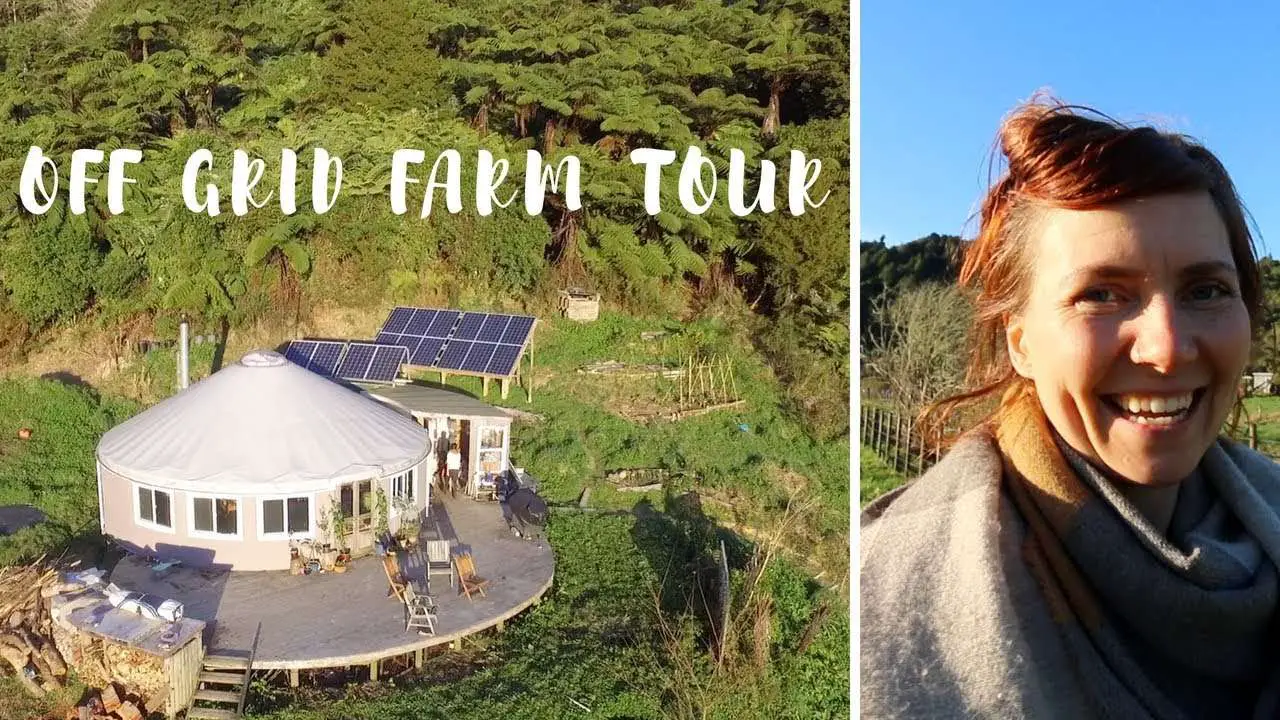Hello! In this article, we will be discussing the sustainability of off-grid living in New Zealand. We will explore the concept of off-grid living, its advantages and challenges, and whether or not New Zealand is self-sufficient in terms of energy and resources. By the end, you will have a better understanding of off-grid living in New Zealand and its impact on sustainability. Let’s get started!
Overview of Off Grid Living in New Zealand
New Zealand, with its breathtaking landscapes and pristine natural beauty, has become a popular destination for individuals seeking a sustainable and self-sufficient lifestyle. Off grid living, which refers to living without reliance on public utilities such as electricity, water, and waste management systems, has gained momentum in recent years. This article explores the concept of off grid living in New Zealand and evaluates its sustainability.
Off grid living: What does it mean?
Off grid living entails disconnecting from the traditional power grid and relying on alternative energy sources for electricity, such as solar power, wind power, and hydro power. It also involves sourcing water from natural sources like rainwater, springs, and rivers, as well as implementing efficient water management practices. Off grid living is often associated with sustainable food production and self-sufficiency through organic farming, permaculture, and raising livestock. It also involves building sustainable homes, utilizing efficient insulation and heating systems, and adopting environmentally-friendly practices in waste management and recycling.
Why is off grid living becoming popular in New Zealand?
There are several factors contributing to the increasing popularity of off grid living in New Zealand. Firstly, the country’s vast natural resources, such as sunshine, wind, and water, present abundant opportunities for harnessing renewable energy sources. This, coupled with the desire for a more sustainable lifestyle, has spurred individuals to embrace off grid living. Additionally, the allure of living in remote areas surrounded by nature, and the desire to reduce one’s carbon footprint, have greatly influenced people’s decision to adopt off grid living.
Energy Sources for Off Grid Living
Renewable energy options: Solar power
Solar power is one of the most popular renewable energy options for off grid living in New Zealand. The country receives ample sunlight, making it ideal for harnessing solar energy. Solar panels installed on rooftops or open fields capture sunlight and convert it into electricity through photovoltaic cells. Excess electricity can be stored in batteries for use during overcast days or at night. Solar power provides a reliable and sustainable energy source, reducing dependence on fossil fuels and lowering carbon emissions.
Renewable energy options: Wind power
With its strong and consistent winds, New Zealand offers great potential for wind power generation. Wind turbines convert wind energy into electricity, which can then be utilized for off grid living. Wind turbines are particularly effective in coastal and high altitude regions, where winds are stronger. However, wind power is subject to variable wind patterns, necessitating the installation of battery systems for storing surplus energy. Wind power can supplement solar power, providing a reliable and diverse energy mix.
Renewable energy options: Hydro power
New Zealand’s plentiful rivers and water resources provide an ideal landscape for hydro power generation. Hydroelectric power plants harness the energy from flowing or falling water to generate electricity. Small-scale hydro systems, such as micro-hydro systems, are commonly used for off grid living. These systems capture the energy from natural streams or rivers, providing a continuous and reliable source of electricity. Hydro power is considered a clean and renewable energy option, contributing to New Zealand’s goal of achieving a carbon-neutral future.
Challenges and limitations of renewable energy sources
While renewable energy sources offer numerous advantages for off grid living, there are challenges and limitations associated with these technologies. Firstly, the initial setup costs can be substantial, especially for solar and wind power systems. However, the long-term savings and independence from fluctuating energy prices often offset these costs. Secondly, renewable energy sources are highly dependent on weather conditions. Variable weather patterns can impact the reliability and consistency of energy production. To address this challenge, integrating multiple renewable energy sources and implementing energy storage systems, such as batteries, is necessary.
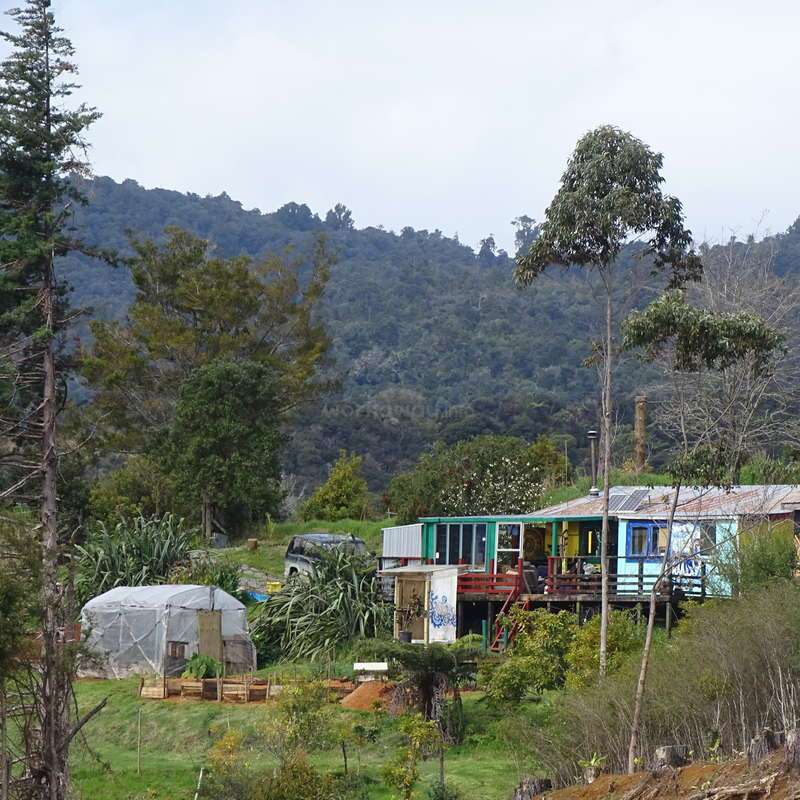
Water Sources and Management
Collecting and storing rainwater
In off grid living, collecting and storing rainwater is a crucial aspect of water management. Rainwater can be collected from rooftops and directed into storage tanks or cisterns. Proper filtration systems are essential to remove impurities and ensure that the collected rainwater is safe for consumption. Rainwater can be used for various purposes, including drinking, cooking, bathing, and irrigation. Implementing water conservation practices, such as installing low-flow fixtures and using water-efficient appliances, further minimizes water wastage.
Alternative water sources: Springs and rivers
In addition to rainwater, off grid communities often rely on alternative water sources like springs and rivers. These natural sources provide a steady supply of fresh water throughout the year. Proper filtration and purification methods are necessary to remove any contaminants and ensure the water’s safety. It is important to note that the collection and utilization of water from springs and rivers should be done responsibly, taking into consideration the ecological impact and the need to maintain the sustainable use of these resources.
Efficient water usage and conservation
Conserving water plays a vital role in off grid living, especially in areas with limited water availability or during periods of drought. The adoption of water-efficient practices, such as installing low-flow toilets and showers, reusing greywater (water from sinks, showers, and laundry) for irrigation, and practicing rainwater harvesting, helps minimize water consumption. Additionally, educating individuals about the importance of water conservation and promoting mindful water usage within off grid communities encourages a sustainable approach to water management.
Waste water management
Off grid living requires effective waste water management to prevent pollution and protect the environment. On-site wastewater treatment systems, such as septic tanks or composting toilets, are commonly used to treat and dispose of human waste. These systems ensure that waste is properly treated and that the surrounding soil and water sources are not contaminated. Implementing responsible waste management practices, such as minimizing chemical usage and recycling graywater, further enhances the sustainability of off grid living.
Food Production and Self-Sufficiency
Organic farming and permaculture
Off grid living in New Zealand often revolves around organic farming and permaculture principles. Organic farming involves the cultivation of crops and raising livestock using natural fertilizers, beneficial insects, and biological pest control methods. Permaculture, on the other hand, focuses on creating sustainable and self-sufficient ecosystems that mimic nature’s patterns. It combines agriculture, forestry, and animal husbandry in a way that maximizes resource efficiency and minimizes waste. These practices enable off grid communities to produce their own food, promoting self-sufficiency and reducing reliance on external food sources.
Vegetable gardens and fruit orchards
Growing vegetable gardens and fruit orchards is an integral part of off grid living in New Zealand. The country’s fertile soil, coupled with a favorable climate, allows for the cultivation of a wide variety of fruits, vegetables, and herbs. Off grid communities often maintain diverse and abundant gardens, providing fresh and nutritious produce year-round. By growing their own food, residents have control over the quality and sustainability of their food sources, reducing the need for transportation and packaging associated with store-bought produce.
Livestock raising and beekeeping
Off grid living encourages the raising of livestock, such as chickens, goats, cows, and sheep, for food production and self-sufficiency. Livestock provide a sustainable source of meat, eggs, dairy products, and fiber. Raising animals in a humane and organic manner aligns with the principles of off grid living, ensuring a healthy and environmentally-friendly food source. Beekeeping is also commonly practiced in off grid communities, as it supports pollination and provides a source of honey, wax, and other bee-related products.
Preserving and storing food
To maintain a year-round food supply, off grid communities utilize preservation and storage techniques. Canning, freezing, fermenting, and dehydrating are common methods used to preserve excess fruits, vegetables, and meats. Root cellars, pantries, and cold storage areas are set up to store preserved and non-perishable food items in a cool and controlled environment. By preserving and storing food, off grid communities reduce food waste and ensure a sustainable and resilient food system.
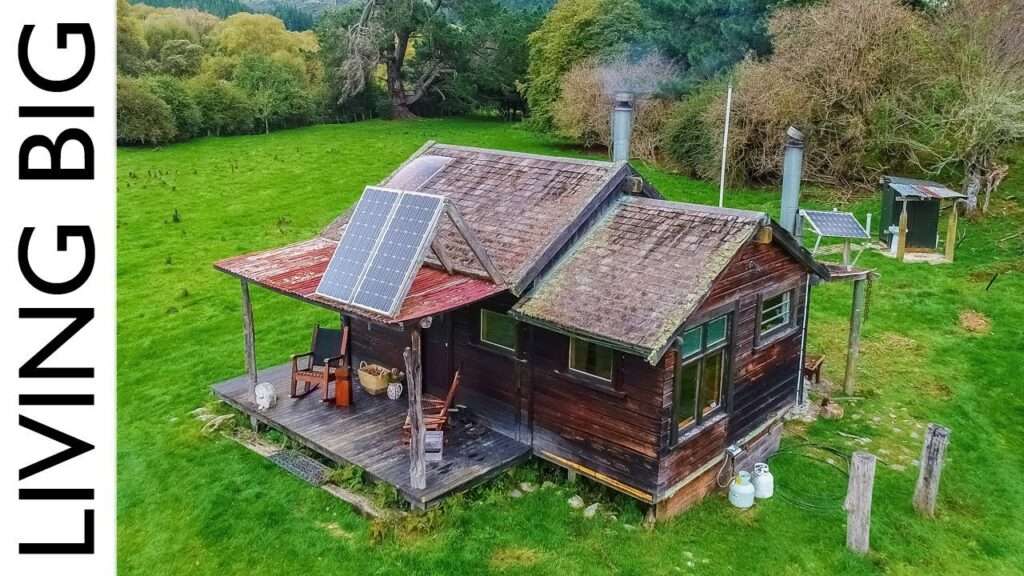
Infrastructure and Technology
Building sustainable off grid homes
Off grid living necessitates the construction of sustainable homes that prioritize energy efficiency and self-sufficiency. Building materials and design choices play a significant role in reducing energy consumption and minimizing environmental impact. Construction techniques that focus on efficient insulation, passive solar design, and the use of sustainable materials, such as recycled timber and eco-friendly insulation, are commonly employed. These sustainable homes optimize energy usage, reduce reliance on heating and cooling systems, and blend harmoniously with the surrounding environment.
Efficient insulation and heating systems
Insulation is crucial in off grid homes to maintain a comfortable indoor temperature and minimize heat loss. High-quality insulation materials, such as wool, cellulose, or foam insulation, ensure efficient heat retention during colder months. Additionally, utilizing passive heating methods, such as strategically positioning windows to capture sunlight, further reduces the need for active heating systems. In colder regions, efficient wood-burning stoves or energy-efficient heat pumps can be implemented to provide heating, while minimizing energy consumption.
Off grid internet and communication
Access to reliable internet and communication services is essential for off grid communities to stay connected with the world. In remote areas, where traditional internet infrastructure may be unavailable, alternative solutions like satellite internet or wireless broadband connections are utilized. These technologies provide internet connectivity and enable communication through email, voice calls, video conferencing, and online platforms. Reliable communication is crucial for emergencies, accessing essential services, and staying connected with off grid communities around the country.
Off grid transportation
Off grid living often involves a shift towards eco-friendly and sustainable modes of transportation. Individuals living off grid embrace alternatives to traditional vehicles powered by fossil fuels. Electric vehicles (EVs) and hybrid vehicles are gaining popularity as they reduce carbon emissions and rely on renewable energy sources for charging. Additionally, bicycles, electric bikes, and walking replace short-distance trips, promoting physical activity and minimizing the environmental impact of transportation. Off grid communities also encourage carpooling and the use of public transportation to reduce the number of vehicles on the road.
Challenges and Solutions
Isolation and limited resources
One of the challenges faced by individuals living off grid in New Zealand is the sense of isolation and limited access to amenities and resources. The remoteness of some off grid communities may result in longer travel times to access healthcare, schools, and shopping centers. However, advancements in technology, such as improved transportation and communication infrastructure, have mitigated these challenges to some extent. Additionally, the strong community support and cooperation within off grid communities provide a safety net and foster a sense of belonging.
Extreme weather and natural disasters
New Zealand’s geographical location exposes off grid communities to the potential risks of extreme weather events and natural disasters, such as earthquakes, floods, and storms. These incidents can disrupt essential services, damage infrastructure, and restrict access to resources. However, off grid living encourages individuals to implement resilient and sustainable systems. Building structures that adhere to strict safety standards, storing emergency supplies, and having well-defined evacuation plans are crucial in mitigating the impact of such events and ensuring the safety of off grid communities.
Community support and cooperation
Living off grid requires a strong sense of community and cooperation among residents. Establishing support networks and fostering relationships within off grid communities help individuals overcome challenges and share knowledge and resources. Cooperation in food production, water management, waste management, and energy generation promotes resilience and self-sufficiency. Regular community meetings, collective decision-making, and skill-sharing create a sense of unity and contribute to the overall success of off grid living.
Innovative solutions for sustainable off grid living
The pursuit of sustainable off grid living in New Zealand has given rise to innovative solutions and technologies. Advancements in renewable energy technologies, such as more efficient solar panels and wind turbines, have enhanced the reliability and affordability of off grid energy systems. Energy storage technologies, such as advanced battery systems and pumped hydro storage, enable the efficient use of excess energy during times of low generation. Smart home automation systems provide individuals with real-time energy monitoring, optimizing energy usage and reducing wastage. These innovations contribute to the long-term sustainability of off grid living.
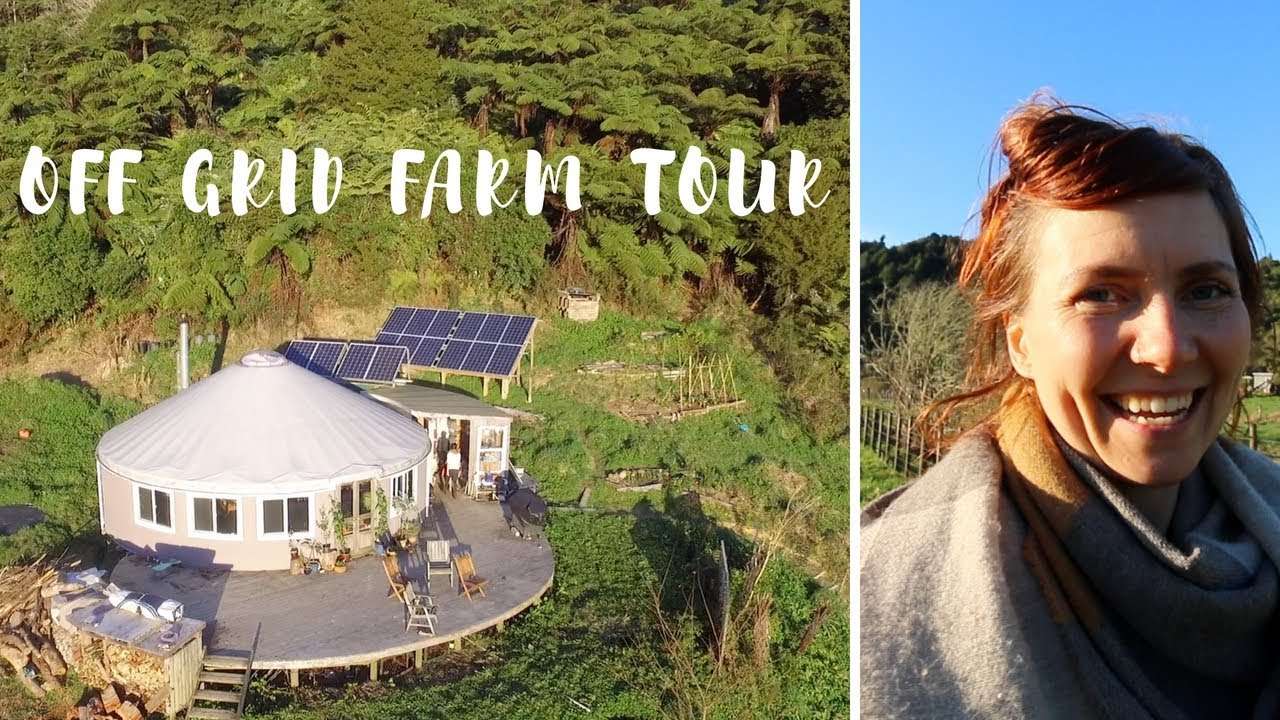
Environmental Impact and Conservation
Reducing carbon footprint
Off grid living in New Zealand inherently reduces individuals’ carbon footprint by relying on renewable energy sources and minimizing energy consumption. The transition from fossil fuels to renewable energy significantly reduces greenhouse gas emissions. Off grid communities also adopt sustainable practices in waste management and recycling, further reducing their environmental impact. By embracing sustainable transportation options, reducing water wastage, and practicing organic farming, off grid living promotes a low-carbon lifestyle, minimizing the environmental harm associated with traditional living.
Protecting natural resources and ecosystems
Off grid living places a strong emphasis on protecting natural resources and ecosystems. Communities residing in remote areas are particularly mindful of their impact on the surrounding environment. Sustainable practices, such as responsible water usage, proper waste management, and promoting biodiversity through organic farming, preserve the integrity of natural resources. Off grid living encourages individuals to live in harmony with nature, minimizing habitat destruction and promoting the conservation of New Zealand’s unique flora and fauna.
Minimizing waste and promoting recycling
Off grid living fosters a culture of waste reduction and recycling. With limited access to traditional waste management systems, individuals are motivated to find creative solutions for minimizing waste. Composting organic waste, reusing materials, and repurposing items are common practices in off grid communities. Proper disposal of hazardous waste and the responsible recycling of materials are integral to maintaining a clean and sustainable living environment. Off grid living promotes a circular economy mindset, where waste is minimized, and resources are conserved and recycled.
Economic Considerations
Costs of setting up and maintaining off grid systems
The initial setup costs of off grid living systems can be significant. Investments in renewable energy sources, water collection and storage infrastructure, and sustainable home construction may require a higher upfront investment compared to traditional living arrangements. However, over time, these costs are offset by the financial benefits of reduced or eliminated utility bills. Off grid living provides individuals with long-term energy security and protection against fluctuating energy prices, offering potential cost savings in the future.
Financial benefits and long-term savings
Off grid living presents financial benefits and long-term savings for individuals. By generating their own energy through renewable sources, off grid communities significantly reduce or eliminate electricity bills. The reliance on natural resources, such as rainwater and food produced on-site, reduces expenses related to water and groceries. Additionally, by minimizing waste and adopting sustainable practices, off grid living reduces the need for excessive consumption, leading to financial savings in the long run. Off grid communities prioritize self-sufficiency, minimizing reliance on external resources and lowering living costs.
Opportunities for off grid entrepreneurship
The growing popularity of off grid living in New Zealand has created opportunities for off grid entrepreneurship. Off grid communities often rely on independent businesses and local enterprises for goods and services. Individuals with skills in renewable energy installation, organic farming, sustainable construction, and eco-friendly products can find niche markets within off grid communities. These entrepreneurial ventures contribute to the local economy, create employment opportunities, and foster a resilient and self-sufficient off grid ecosystem.
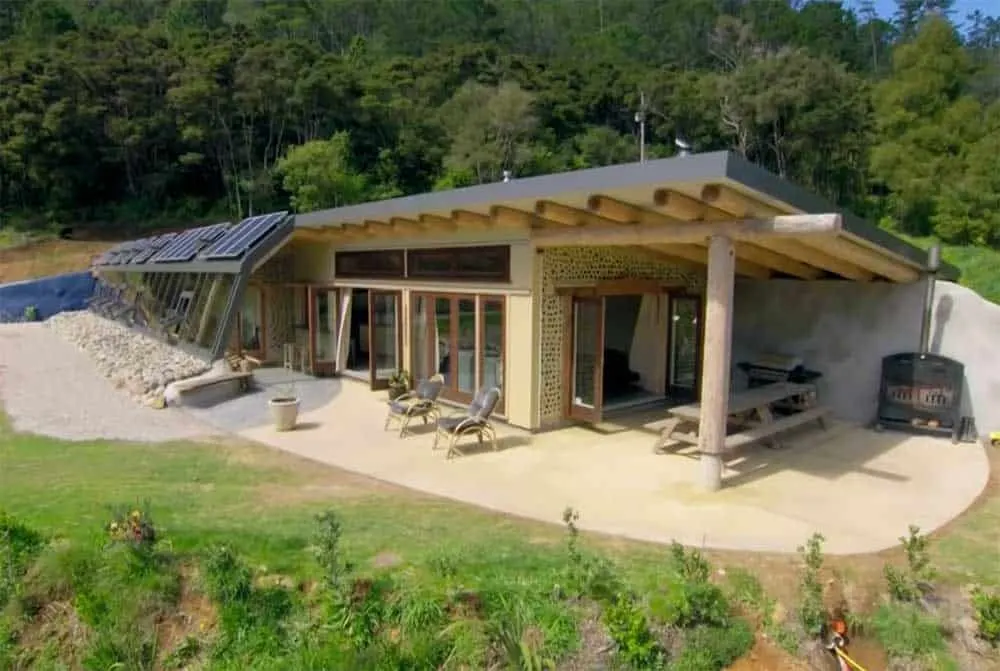
Social and Lifestyle Factors
Self-reliance and self-sufficiency
Off grid living fosters a sense of self-reliance and self-sufficiency among individuals. The ability to generate one’s own energy, produce food, and manage essential resources empowers individuals to live independently and take control of their lifestyle. Self-reliance promotes resilience and adaptability, as individuals become less dependent on external systems and resources. Off grid living encourages the development of practical skills and a deep understanding of sustainable practices, enriching individuals’ lives and creating a fulfilling sense of accomplishment.
Connection with nature and outdoor activities
Living off grid in New Zealand provides individuals with a unique opportunity to connect with nature and engage in outdoor activities. Surrounded by breathtaking landscapes and abundant wildlife, off grid communities offer a pristine environment for hiking, camping, fishing, and other recreational pursuits. Immersion in nature enhances individuals’ mental and physical well-being, promoting a healthier and more balanced lifestyle. Off grid living encourages individuals to appreciate and protect the natural beauty that New Zealand has to offer.
Alternative education and homeschooling in off grid communities
Off grid living allows for alternative education and homeschooling opportunities. In remote areas, access to traditional schools can be limited or impractical. Many off grid communities opt for homeschooling, where parents or community members take on the role of educators. This provides a personalized education experience and allows individuals to learn in harmony with their natural surroundings. Children in off grid communities acquire valuable skills through hands-on learning, encouraging curiosity, critical thinking, and an appreciation for sustainability.
Regulations and Legalities
Building codes and permits
Off grid living in New Zealand is subject to building codes and regulations to ensure safety, health, and environmental standards are met. When constructing sustainable homes or implementing alternative energy systems, individuals must adhere to local building codes and obtain the necessary permits. These codes ensure that off grid homes are structurally sound, energy-efficient, and safe for occupancy. Compliance with building regulations promotes the long-term sustainability and resilience of off grid communities.
Off grid living regulations and restrictions
Off grid living in New Zealand is subject to specific regulations and restrictions in certain areas. While the country promotes sustainable and self-sufficient living, zoning laws and local regulations may impose limitations on off grid activities. Off grid residents need to be aware of these regulations and seek appropriate approvals to avoid any legal issues. Consulting with local authorities, engaging in community discussions, and staying informed about the current regulations are essential for successful off grid living.
Navigating legal requirements for off grid systems
Setting up and maintaining off grid systems requires individuals to navigate legal requirements associated with alternative energy sources and infrastructure. Whether it is acquiring permits for installing solar panels or ensuring compliance with electrical safety standards for battery systems, off grid residents must familiarize themselves with the relevant legal requirements. Engaging professionals, such as solar installers or construction specialists, can provide valuable guidance in navigating the legal aspects of off grid living.
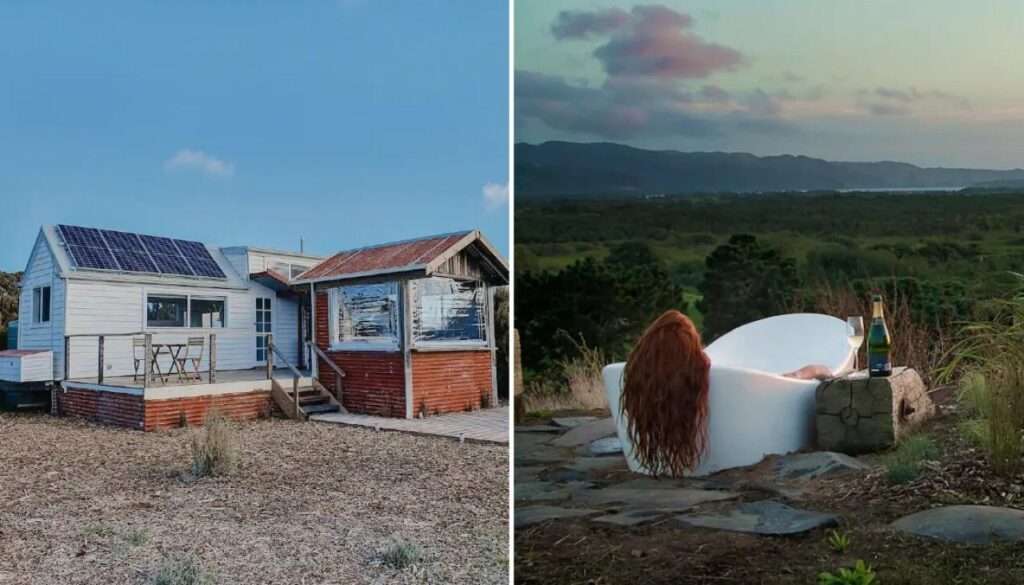
Community and Support Networks
Benefits of living in off grid communities
One of the key advantages of off grid living in New Zealand is the strong sense of community and support networks that develop within these communities. Living off grid brings individuals together with shared values and ideals, fostering a tight-knit community environment. Off grid communities often organize workshops, skill-sharing sessions, and community events, providing opportunities for socializing and exchanging knowledge. The support and camaraderie within off grid communities create a sense of belonging and security, making off grid living a fulfilling and enriching experience.
Sharing resources and skills
Off grid communities thrive on the principles of sharing resources and skills to achieve self-sufficiency. Residents pool their knowledge and expertise in various areas, such as energy generation, food production, construction, and water management. Sharing resources, whether it be tools, seeds, or surplus produce, builds interdependence and promotes a sustainable model of living. By leveraging the collective skills and resources of the community, off grid residents create a resilient and self-reliant support system.
Supportive networks and collective decision-making
Living off grid requires collective decision-making and community involvement. Off grid communities often establish systems for making decisions collectively, taking into account the needs and opinions of all members. Regular community meetings, open discussions, and consensus-based decision-making ensure that the community’s interests are upheld. The supportive network within off grid communities provides emotional support and encourages a sense of common purpose, fostering social cohesion and cooperation.
Health and Well-being
Access to healthcare in remote areas
Access to healthcare can be a challenge for off grid communities located in remote areas. Distance from medical facilities and specialized services may require individuals to travel for extended periods to access healthcare. However, advancements in telehealth and telemedicine have bridged this gap to some extent. Video consultations, remote diagnosis, and delivery of medication to off grid communities ensure access to essential healthcare services. Off grid living’s focus on self-sufficiency and healthy living also promotes a proactive approach to health and wellness.
Mental and physical well-being in off grid living
Off grid living has been shown to positively impact individuals’ mental and physical well-being. Surrounded by nature and free from the stressors of urban living, off grid residents generally experience lower stress levels and improved mental health. The connection with nature, engaged physical activity, and the sense of purpose that comes with self-sufficient living contribute to overall well-being. The slower pace of life, reduced exposure to environmental pollutants, and healthier lifestyle choices create a conducive environment for optimal health.
Alternative medicine and holistic practices
Off grid living often embraces alternative medicine and holistic practices. Communities often include individuals with expertise in herbal medicine, traditional healing practices, and holistic therapies. Drawing from the abundant natural resources available, off grid residents may utilize herbal remedies and natural therapies to treat common ailments. These practices align with the principles of sustainable living and promote a holistic approach to health and wellness.
Tourism and Off Grid Living
Sustainable tourism in off grid communities
Off grid living in New Zealand has sparked interest among tourists seeking authentic and sustainable experiences. Sustainable tourism in off grid communities offers visitors the opportunity to witness and learn from self-sufficient lifestyles. Eco-lodges and eco-retreats, designed with sustainable principles in mind, provide accommodation for tourists interested in experiencing off grid living firsthand. Tourism in off grid communities contributes to the local economy, fosters cultural exchange, and raises awareness about sustainable practices and environmental conservation.
Attracting tourists interested in eco-friendly lifestyles
New Zealand’s reputation as a leader in environmental conservation attracts tourists interested in eco-friendly lifestyles. Off grid living showcases sustainable practices and offers visitors a glimpse into alternative ways of living. Tourists seeking to learn about renewable energy, organic farming, and permaculture find inspiration in off grid communities. By sharing knowledge and experiences with tourists, off grid residents raise awareness about the benefits of sustainable living and inspire others to adopt eco-friendly practices.
The impact of tourism on off grid living
While tourism provides economic opportunities for off grid communities, it also poses challenges. The influx of tourists may strain local resources, such as water and food supplies. Balancing the needs of tourists with the sustainable practices and limited resources of off grid communities requires careful planning and management. Encouraging responsible tourism and educating visitors about the principles of off grid living can help minimize the impact of tourism on the environment and the local community.
Conclusion
Evaluating the sustainability of off grid living in New Zealand reveals both the benefits and challenges of this lifestyle. The country’s rich natural resources, coupled with a growing desire to live sustainably and self-sufficiently, contribute to the popularity of off grid living. Renewable energy sources, efficient water management, sustainable food production, and eco-friendly infrastructure are integral to this way of life. However, off grid living also requires individuals to navigate legal requirements, adapt to limited resources, and address potential isolation. By embracing the principles of self-sufficiency, conservation, and community support, off grid living in New Zealand can achieve long-term sustainability and contribute to a greener and more resilient future.

